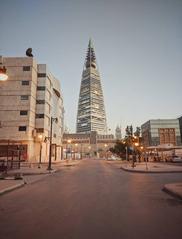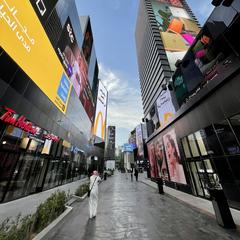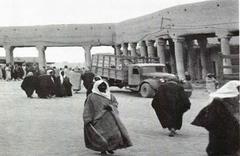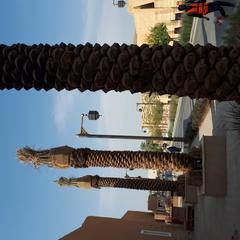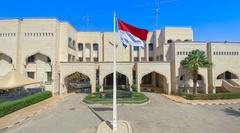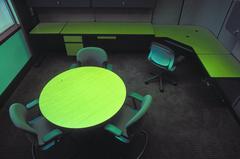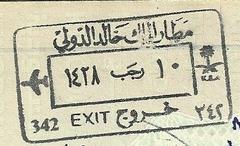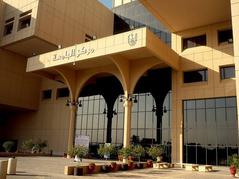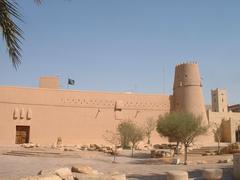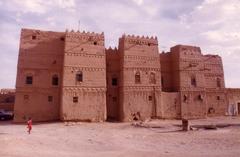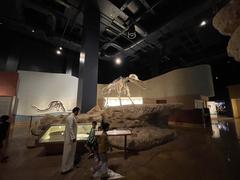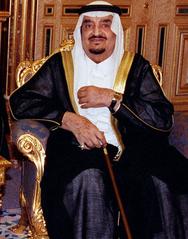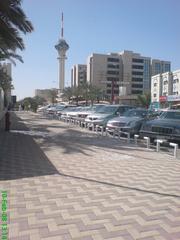Riyadh Military Hospital Visiting Hours, Tickets, and Guide to Riyadh Historical Sites
Date: 03/07/2025
Introduction
Prince Sultan Military Medical City (PSMMC), formerly known as Riyadh Military Hospital, is one of Saudi Arabia’s most prominent healthcare institutions and a vital landmark in Riyadh. Established in 1978 by King Khalid bin Abdulaziz, PSMMC has grown to become a regional leader in medical innovation, education, and research. Serving both military personnel and select civilians, the hospital is recognized not just for its advanced medical services, but also for its contributions to Riyadh’s historical and cultural landscape.
This comprehensive guide covers everything prospective visitors need to know about PSMMC, including visiting hours, access procedures, transportation options, visitor etiquette, and nearby attractions. Whether you are planning a professional, academic, or personal visit, this resource will help ensure a smooth and respectful experience.
For ongoing updates and detailed information, consult official sources such as PSMMC Official Website and trusted platforms like SehaGuide.
Overview of Contents
- Introduction and Significance
- History and Achievements
- Visiting Information
- Visiting Hours and Access Protocols
- Location and Transportation
- Accessibility
- Hospital Structure and Facilities
- Medical Specialties and Research
- Cultural Etiquette and Visitor Guidelines
- Parking and Transportation Tips
- Nearby Attractions
- Frequently Asked Questions (FAQs)
- Conclusion
- Official Links and Resources
History and Significance
Founded in 1978, PSMMC was originally established to serve Saudi Arabia’s armed forces and their families. Rapid expansion and medical advancements led to its renaming in honor of Prince Sultan bin Abdulaziz in the early 2000s. Today, with more than 1,200 beds and cutting-edge technology, the hospital stands as a beacon of medical excellence in the Middle East.
Significant milestones include the first renal and liver transplants in Saudi Arabia, establishment of an exclusive bone marrow transplant center, and introduction of advanced neurosurgical and oncology services. These achievements have positioned PSMMC as a regional hub for complex medical care, medical education, and research.
Visiting Prince Sultan Military Medical City
Visiting Hours and Access
- General Visiting Hours: 4:00 PM – 8:00 PM daily. These may vary during Ramadan and other religious periods. Always verify current timings on the official website.
- Specialized Areas: Intensive Care Units and Neonatal Wards have restricted access; prior approval is necessary.
- Entry Protocols: Visitors must present valid identification (national ID or passport) at security checkpoints. Bags may be inspected, and the purpose of the visit must be stated. Photography is strictly prohibited within the premises to protect patient privacy.
Location and Transportation
- Address: Centrally located on King Abdulaziz Road, Riyadh; approximately 20 km north of city center.
- Getting There: Accessible via private car, taxi, and ride-hailing services such as Uber and Careem. Public transportation is limited.
- Parking: Ample free parking is available, but spaces fill quickly during peak hours. Taxi and ride-hailing drop-off points are near the main entrance.
Accessibility
- The facility is wheelchair accessible, with ramps, elevators, and assistance services for people with disabilities.
- Multilingual staff and signage (primarily in Arabic, with English widely spoken among staff) help facilitate communication for international visitors.
Hospital Structure and Facilities
- Campus Layout: The hospital complex includes three main buildings, multiple outpatient clinics, and specialized centers (e.g., Prince Sultan Cardiac Center). Patient flow is organized for efficient navigation, with clear wayfinding and information desks.
- Capacity: Over 1,200 beds including general, intensive, cardiac, and pediatric care units.
- Facilities: Cafeterias, prayer rooms, pharmacies, comfortable waiting areas, and child-friendly spaces.
- Support Services: Patient relations desks, multilingual assistance, and on-site shuttle services.
Medical Specialties and Research
Core Specialties
- Cardiology (including open-heart surgery and rehabilitation)
- Oncology (advanced chemotherapy and radiotherapy)
- Neurology and Neurosurgery (stroke care and epilepsy programs)
- Hematology and Bone Marrow Transplantation
- Pediatrics and Neonatal Intensive Care
- Urology and Nephrology (kidney transplantation)
Advanced Achievements
- First kidney and liver transplants in Saudi Arabia
- Exclusive bone marrow transplant center since 1989
- Pioneering stereotactic radiosurgery and computer-aided surgeries
- Leading epilepsy referral and treatment programs
Research and Education
- Over 1,600 published research articles
- Multiple residency, fellowship, and diploma programs
- Collaborations with academic institutions and digital learning initiatives
Cultural Etiquette and Visitor Guidelines
Dress Code
- Modest attire is required; women are advised to wear an abaya (headscarf optional), and men should avoid shorts and sleeveless shirts.
Gender Segregation
- Some areas observe gender segregation; follow signage and staff instructions regarding designated spaces.
Religious Observance
- Prayer rooms are available for men and women. Activities may pause during prayer times. During Ramadan, refrain from eating, drinking, or smoking in public areas during daylight.
Visiting Conduct
- Maintain a quiet and respectful demeanor. Limit the number of visitors per patient, especially in sensitive wards.
- Gifts such as fruit or flowers are welcome, but check for restrictions.
- Photography and videography are prohibited.
- Remove shoes when entering private rooms or prayer spaces, if customary.
Parking and Transportation Tips
- Arrive early to secure parking during busy periods.
- Clearly state your destination to taxi drivers (“Mustashfa al-Askari” for Military Hospital).
- Use ride-hailing apps for convenience, especially if unfamiliar with local roads.
Nearby Attractions
Make the most of your visit by exploring Riyadh’s cultural and historical sites:
- King Abdulaziz Historical Center
- National Museum of Saudi Arabia
- Al Masmak Fortress
These attractions provide a deeper understanding of Riyadh’s heritage and are easily accessible from PSMMC.
Frequently Asked Questions (FAQs)
Q: Is there an entry fee or ticket required to visit PSMMC?
A: No, visiting is free; however, appointments or prior arrangements are needed for guided or academic visits.
Q: Can civilians receive care at PSMMC?
A: Yes, select civilian cases are accepted, primarily in emergencies or with referrals.
Q: Are children allowed to visit?
A: Yes, but visitor numbers should be limited and children must be supervised.
Q: Are guided tours available?
A: PSMMC occasionally offers tours for educational groups by appointment; general public tours are not offered due to security.
Q: How do I contact the hospital or book an appointment?
A: Use the official website or main telephone line for appointments and inquiries.
Q: Is the hospital accessible for people with disabilities?
A: Yes, PSMMC features comprehensive accessibility accommodations.
Conclusion
Prince Sultan Military Medical City exemplifies medical innovation, patient care, and cultural respect in Riyadh. Visitors should prepare by understanding local customs, following hospital protocols, and planning ahead for transportation and access. For the latest information, always check official resources or contact PSMMC directly.
Exploring PSMMC offers not only insight into Saudi Arabia’s healthcare leadership but also an opportunity to experience Riyadh’s rich cultural tapestry.
Official Sources and Further Reading
- PSMMC Official Website
- SehaGuide
- Total Military Insight
- military-history.fandom.com
- Audiala app for Riyadh travel tips and updates
For comprehensive travel advice and cultural guides on Riyadh and Saudi Arabia, download the Audiala app and follow us on social media for up-to-date insights.
